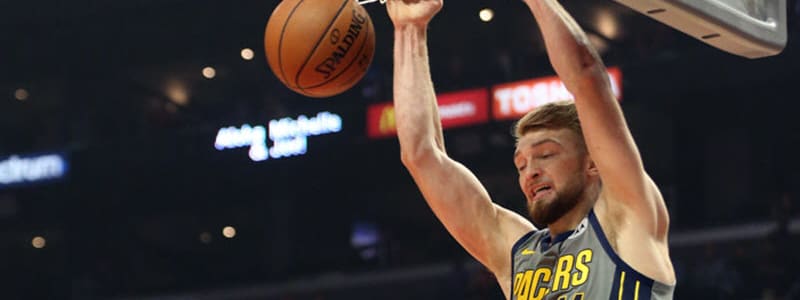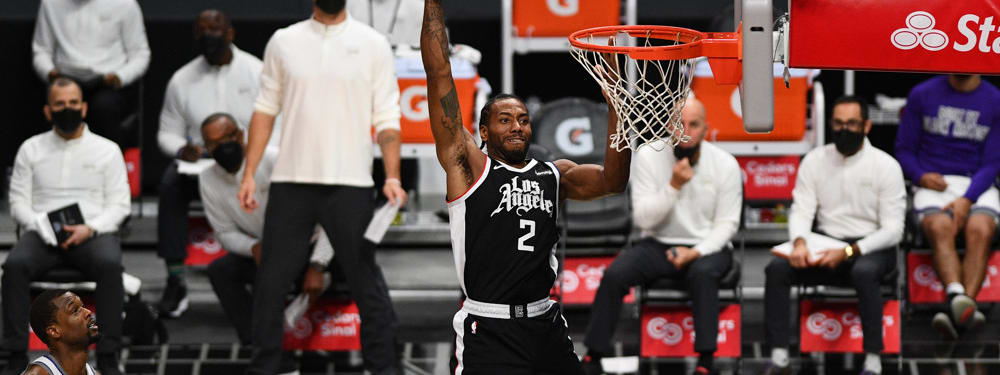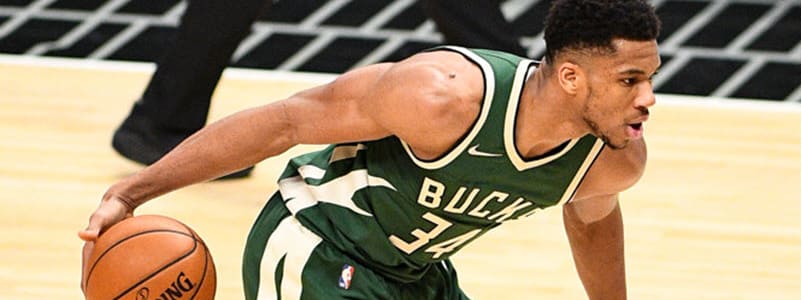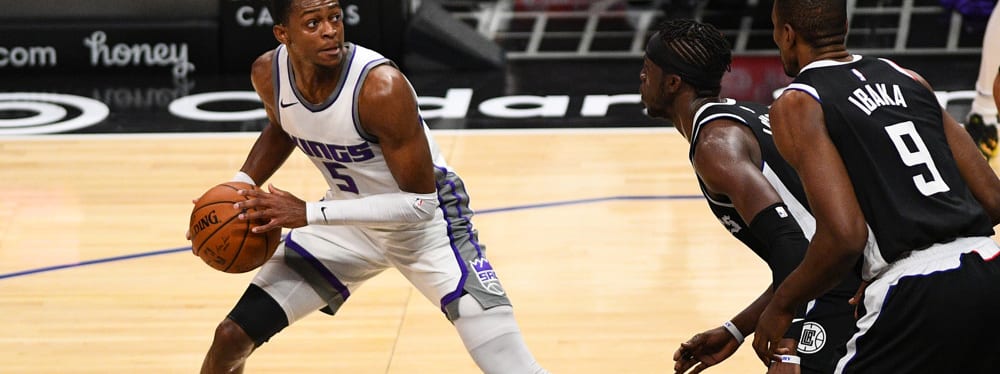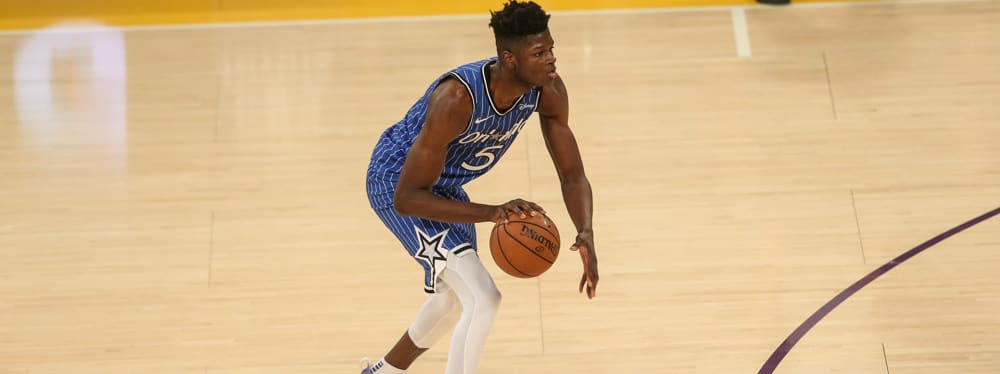Recent RotoWire Articles Featuring Jeff Teague
See More
In November of 2020, Jeff Teague signed a one-year contract with Boston. The 32-year-old veteran now provides the type of experience Boston has not seen at the back-up point guard position in quite some time. Teague's veteran presence should aid fellow veteran Kemba Walker, who is still bothered by the knee issues he faced last season and will be out until at least mid-January. Teague's presence also allows Marcus Smart to worry less about backing-up Walker and more time to focus on filling the void left by Gordon Hayward's departure. This is a long way of saying that Teague should continue to see nearly the same amount of minutes (24.8 minutes per game) he received as a back-up in Atlanta last year. Of concern though is Teague's shooting. His field goal percentage has gradually declined since the 46.0 percent he shot in 2014-15. But with plenty of other Celtic weapons available, Teague should be in line for some easy catch-and-shoot three-pointers, assuming he can fight off rookie Payton Pritchard, the 26th pick in the 2020 NBA Draft. In deeper leagues, Teague offers some of the best available production by a back-up point guard.
A model of consistency and relatively good health for the majority of his career, Teague endured a somewhat atypical campaign last season in various aspects. To begin with, he suited up for a career-low 42 games as a result of ankle and foot issues. He also averaged his fewest points in nearly a decade, with his 12.1 per contest ranking as his lowest since the 2010-11 campaign. Unsurprisingly, that downturn was accompanied by an inefficient shot -- Teague's 42.3 percent success rate from the floor was the second-lowest of his career, exceeding only the 39.6 percent figure he'd mustered in his rookie 2009-10 season. On the brighter side, the veteran did dish out a career-best 8.2 assists per game, helping make up for his offensive struggles from both a real-world and fantasy perspective. Looking ahead to the coming season, Teague projects as the unquestioned starter at point guard once again, although the talented Shabazz Napier does loom as his backup. An uptick in health alone should lead to an improvement in Teague's overall numbers, as he's never averaged fewer than 14.7 points per game when playing at least 70 contests in a season. Talented first-round pick Jarrett Culver, Andrew Wiggins, Robert Covington and Karl-Anthony Towns should also help keep Teague's assists upside high, making a resurgence highly conceivable if he can avoid the injury bug.
After one season with his hometown Pacers, Teague joined Jimmy Butler and Taj Gibson with the new-look Timberwolves last summer. The move resulted in a slight hit too his production across the board, though Teague was able to slightly increase his defensive production, providing 1.5 steals per game, up from 1.2 per game in 2016-17. When Butler missed a chunk of the season with a knee injury, Teague took on additional offensive responsibility, averaging at least 15 points per game in February, March and April. However, Teague had some health issues of his own, missing a total of 12 games throughout the season. Nevertheless, Teague maintained his reputation as one of the more consistent, mid-level point guards in the league, finishing the season with averages of 14.2 points, 7.0 assists, 1.5 steals and 1.2 made three-pointers per game. Those numbers were roughly on par with the production he's provided since becoming a full-time starter in 2011-12, and there's little reason to believe Teague won't put up similar averages in 2018-19. While Minnesota has a capable backup point guard in Tyus Jones, coach Tom Thibodeau has been hesitant to explore his depth and Teague's role as the big-minutes starter shouldn't be in much jeopardy.
Teague spent the first seven years of his career with the Hawks before being dealt to the Pacers last season, where he posted 15.3 points, a career-high 7.8 assists, a career-high 4.0 rebounds, and 1.2 steals across 32.4 minutes per game. He also shot 44.2 percent from the field and made 1.1 threes per game at a 35.7 percent mark. He’ll be joining a new situation in Minnesota, who have one of the more talented starting fives in the league, featuring the likes of Jimmy Butler, Andrew Wiggins and Karl-Anthony Towns. The pressure will be off Teague from an offensive perspective, with defenses likely having to focus on the other star talent. As a result, Teague should see plenty of open looks, which could help him creep closer to the career-high 40.0 percent he shot from three during the 2015-16 season. While Teague has never posted eye-popping numbers throughout his career and likely won’t start doing so now, he’s essentially the archetype for the 15th best Fantasy point guard every season and is a solid pick up in the fourth or fifth round of most standard leagues. Much of that value also comes from Teague’s historically good health, as he’s averaged 78.6 games played over the past five seasons.
After spending the first seven years of his career in Atlanta, Teague will return to his native Indianapolis this season, joining a revamped Pacers roster that projects to be among the better teams in the Eastern Conference. Teague is coming off of a strong season with the Hawks in which he averaged 15.7 points, 5.9 assists and 2.7 rebounds per game, nearly in line with his career averages since taking over as the full-time starter in 2011-12. However, Teague played his fewest minutes (28.5) since 2010-11, as Dennis Schroder -- now the unquestioned starter in Atlanta -- began to encroach on his workload. That should no longer be an issue in Indiana, where Aaron Brooks, Rodney Stuckey, and Joe Young loom as capable, yet uninspiring point guard options off the bench. Teague figures to see a slight uptick in minutes, though given the change of scenery, it’s a bit more difficult to predict how his numbers will be affected. While he’ll have to defer to Paul George and, at times, Monta Ellis, Teague could rank as the Pacers’ No. 2 offensive option. He’ll also make for an intriguing pick-and-roll partner alongside promising young center Myles Turner. If Teague continues to hone his outside shooting efficiency, which has increased each of the last three seasons, and can again hover around 40 percent from three-point range, he has the potential to be a productive early-to-mid-round fantasy pick, as has been the case over the past four years.
In his sixth season, Teague elevated his play to All-Star status, turning in averages of 15.9 points on 12.2 field goal attempts, 2.5 rebounds, 7.0 assists, 1.7 steals, and 0.4 blocks in 31 minutes per game through 73 regular season games. The 6-2, 180-pound guard shot 46 percent from the floor, 34 percent from downtown, and 86 percent from the charity stripe. During 16 playoff games, he averaged 16.8 points on 14.9 shot attempts, 3.2 rebounds, 6.7 assists, 1.5 steals, and 0.4 blocks in 33 minutes per game while sinking 41 percent from the field, 32 percent from beyond the arc, and 87 percent from the free-throw line. Teague, who turns 28 next June, is under contract with the Hawks through 2016-17 at an $8 million per year steal.
You might look at Teague's career-best scoring average from last season (16.5 ppg) and assume that the fifth-year point guard had a productive season under new coach Mike Budenholzer, but Teague's averages don't tell the whole story. He struggled to take on the responsibility of running his new coach's San Antonio Spurs-style offense and was wildly inconsistent for much of the season. So much so that, according to a number of reports, Teague was actively being shopped in trades at midseason. But things seemed to click for Teague toward the end of the year, and in the Hawks' first-round playoff loss to the Pacers, he was outstanding (19.3 points, 5.0 assists, 3.7 boards in 35 minute per game against Indiana). Atlanta management is hoping he'll build on that performance and become a more consistent player this season. They'd surely trade a drop in his averages for fewer "peaks and valleys" in his game. With Al Horford back at full strength and a deeper roster, Teague shouldn't need to score quite as much this season for the Hawks to be successful.
At one point, there were rumors that the Hawks would chase Chris Paul in free agency. Instead, general manager Danny Ferry allowed the market to set a price for his incumbent point guard, Jeff Teague. Milwaukee offered $32 million over four years, Ferry matched – and may have gotten a very good deal in the process. Teague is just 25 years old and coming off a career-best season, when he averaged 15.6 points, 7.2 dimes – career highs, both – along with 2.3 rebounds, 1.5 steals and 45 percent shooting from the floor. He could be primed to better those numbers in 2013-14. Bear in mind – he compiled them while playing just 33 minutes per game; Devin Harris played 25. Now, Harris is gone, and apart from Lou Williams – who is coming off ACL surgery and is more of a scorer than a point guard – Atlanta doesn't really have an established backup. It seems reasonable to anticipate a larger role for Teague this season and beyond.
Teague proved capable in his first season as a starter, doubling nearly all of his per game averages from the year before. Of course, such improvement is to be expected when a player’s minutes rise from just 13.8 to 33.1 minutes per game. He faces a much stiffer challenge for playing time this season after the Hawks added Louis Williams, Devin Harris and Anthony Morrow to the guard mix. As long as there’s a roster jam in the backcourt, Teague may see a slight cut in minutes. Though the time crunch could adversely affect many of Teague’s counting stats, he’ll likely be relied on to be more of a pass-first point guard, so his assists per game could actually rise. Similar expectations may be placed on Harris as well, which may ultimately force coach Larry Drew to decide which of the two players he trusts more as a floor general. Teague is just 24 and entering his fourth NBA season, so he would seem to have more upside at this point than Harris, who will turn 30 in February. Teague will look to stake his claim to a starting job on the strength of his improved shooting. His field goal percentage rose to 47.6 percent in 2011-12 despite hoisting nearly six more shots per game. The Hawks have talked a lot about Teague this offseason, painting him to be a centerpiece of their future. With Harris’ contract expiring after this season, there’s little doubt that Teague will be given more of a leadership role than Harris or the newly acquired Williams.
The 2011 Eastern Conference Semifinals served as Jeff Teague’s coming-out party. When Kirk Hinrich was injured, the little-used second-year guard out of Wake Forest stepped up in a big way, averaging 14.8 points, 4.2 assists, 2.8 rebounds, one steal and 0.5 blocks against just 1.2 turnovers. That performance likely earned Teague the starting spot for this season and beyond. Even if Hawks management decides to stick with Hinrich, Teague’s role should increase substantially, as Atlanta is almost certain to lose sixth man Jamal Crawford in free agency. Worth noting: Teague is a better three-point shooter than he showed during that breakout series against the Bulls. He hit just one of seven in the eastern semis, but was a .375 shooter from long range during the regular season and a .441 shooter in his sophomore year at Wake Forest, while hitting more than one per game.
The Hawks selected Teague out of Wake Forest University with the 19th overall pick of the 2009 NBA Draft. With Bibby and Crawford seeing the majority of action at point guard, the team was able to usher Teague in slowly, limiting him to 10 minutes per contest throughout his rookie campaign. The 22-year-old guard is expected to play a bigger role in his second season. Teague is best with the ball in his hands and has an uncanny ability to get to the rim. He’s not likely to be a great assist man, but Teague can hold some value in fantasy as a scorer once he starts receiving more playing time.
The presence of Bibby and Crawford limit Teague's potential as a rookie, but he should see 10-15 minutes as the Hawks attempt to keep Bibby's 31-year-old legs fresh and evaluate Teague's ability. He's more of a shooter than a true point guard, and has the quickness and ballhandling ability to create his own shot. Unless injuries strike, he probably won't see enough court time to be a fantasy factor this year, but Teague could be a name to stow away in your mind for a year or two down the road.
